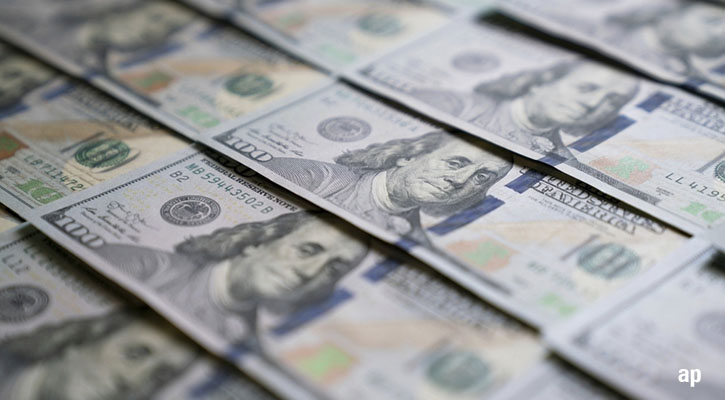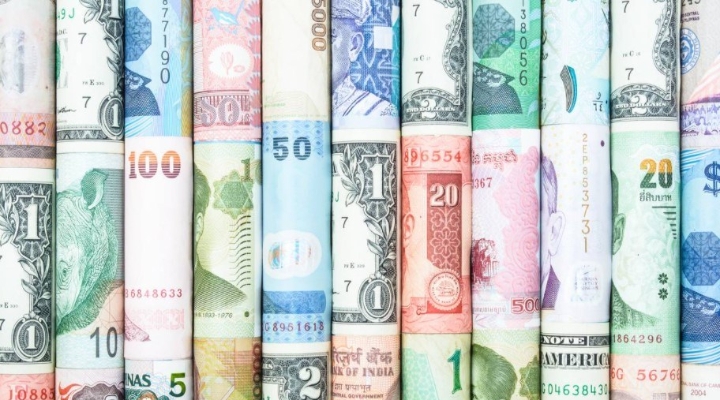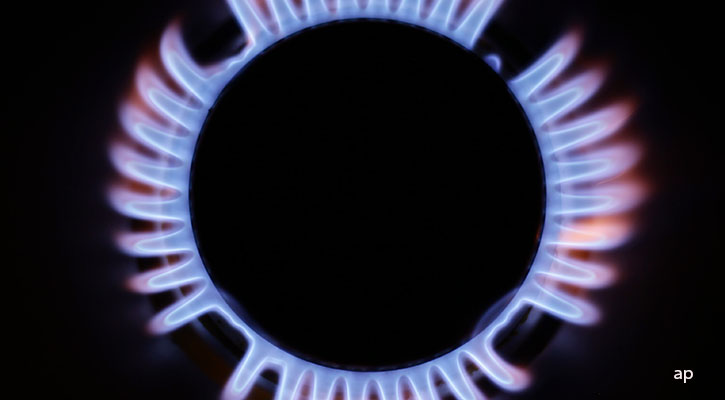(Alliance News) - The following is a summary of top news stories Thursday.
----------
COMPANIES
----------
Shell issued an update for its third quarter that ended September 30, warning that a fall in indicative refining margins will cost it at least USD1.0 billion. The London-based oil and gas major said it expects an indicative refining margin of USD15 per barrel, down 46% from USD28 in the second quarter of 2022. This will have a negative impact for Products of around USD1.0 billion to USD1.4 billion on third quarter adjusted earnings before interest, tax, depreciation and amortisation, Shell cautioned. Further, it expects Upstream production to be around 1.8 million to 1.9 million barrels of oil equivalent per day, down from 2.1 million it produced for the third quarter of 2021. It also warned trading and optimisation results for Integrated Gas will be "significantly lower" compared to the second quarter of this year.
----------
Imperial Brands said financial 2022 trading has been in line with expectations and announced a share buyback programme. The Bristol, England-based tobacco firm announced a GBP1 billion share buyback programme, and said including dividends, annual capital returns are expected to exceed GBP2.3 billion. This is about 13% of its current market capitalisation, it noted. It also said trading in its financial year ended September 30 was in line with expectations. "Targeted investment in our five largest combustible markets which account for around 70% of operating profit has driven an improvement in aggregate market share," Imperial said.
----------
Diageo said its financial year 2023 has started well, with organic net sales growth across all regions. Diageo's financial 2023 started on July 1. The company that owns Guinness, Baileys, Tanqueray, Johnnie Walker, Smirnoff and Captain Morgan, among others, however noted it faces several headwinds. "We expect the operating environment to remain challenging with ongoing volatility due to geopolitical uncertainty, a weakening of consumer spending power, inflationary pressures and disruption related to Covid-19," said Chief Executive Officer Ivan Menezes. He stated the London-based alcoholic beverage company is "well-positioned" to deliver on medium-term guidance for financial 2023 to financial 2025.
----------
RS Group hailed its half-year performance, and now expects an outperformance for profit and revenue in its full year. It said revenue in the six months to September - its first half - was 16% higher year-on-year. During the second quarter to September, RS said revenue performance was underpinned by volume growth and reflects ongoing market share expansion. Like-for-like revenue growth amounted to 15% despite "tough comparatives, macro headwinds and slowing economic growth", it said. RS now expects full-year revenue and adjusted profit to be "slightly ahead" of market consensus.
----------
The head of French energy major TotalEnergies said a possible price cap on Russian oil over the Ukraine war would benefit Russian President Vladimir Putin. The group's chair and Chief Executive Officer Patrick Pouyanne made the remarks at the Energy Intelligence Forum industry gathering in central London. "Honestly, I am not sure that a price cap on Russian oil is a good idea," Pouyanne told delegates when questioned about recent G7 moves towards such a policy. "I think it's a bad idea because it's a way to give the leadership back to Russian President Vladimir Putin and I would never do that." The EU had last week proposed a new round of sanctions on Moscow, including the oil price cap. As part of the new round of sanctions – which has to be signed off by the bloc's 27 nations – the EU is laying out a legal basis for a price cap on Russian oil, in line with a G7 agreement.
----------
MARKETS
----------
It was a cautious day for traders in Europe on Thursday, with Wall Street's open set to be more disappointing, as all eyes turn to the US jobs report due Friday. In London, the blue chips were being held back by a disappointing session from oil major Shell, which issued a worrying outlook for its third quarter.
Victoria Scholar, head of Investment at interactive investor, said: "Oil prices are trading flat, having reached three-week highs on Wednesday after OPEC+ agreed to cut output by 2 million barrels per day in an attempt to snap the recent four-month downtrend for oil prices and boost their crude revenues."
----------
CAC 40: down 0.1% at 5,980.46
DAX 40: up 0.1% at 12,527.89
FTSE 100: down 0.4% at 7,027.00
----------
Hang Seng: closed down 0.4% at 18,012.15
Nikkei 225: closed up 0.7% at 27,311.30
S&P/ASX 200: closed up just 1.80 points at 6,817.50
----------
DJIA: called down 0.4%
S&P 500: called down 0.5%
Nasdaq Composite: called down 0.5%
----------
EUR: higher at USD0.9890 (USD0.9859)
GBP: higher at USD1.1286 (USD1.1252)
USD: down at JPY144.69 (JPY144.78)
GOLD: higher at USD1,715.13 per ounce (USD1,709.08)
OIL (Brent): lower at USD93.21 a barrel (USD93.34)
(currency and commodities changes since previous London equities close)
----------
ECONOMICS AND GENERAL
----------
China's sprawling Xinjiang region is the latest to be hit with sweeping Covid-19 travel restrictions, as the country further ratchets up control measures ahead of a key Communist Party congress later this month. Trains and buses in and out of the region of 22 million people have been suspended, and passenger numbers on flights have been reduced to 75% capacity, reports said. A notice from the regional government said the measures were enacted to "strictly prevent the risk of spillover" of the virus, but gave no other details. As is often the case with China's draconian "zero-Covid" policy, the measures seemed out of proportion to the number of cases detected. The National Health Commission announced just 93 cases in Xinjiang on Wednesday and 97 on Thursday, all of them asymptomatic. Xinjiang leaders on Tuesday conceded problems with detection and control measures but offered no word on when they planned to lift the restrictions.
----------
Fitch lowered the outlook for its credit rating for UK government debt from stable to negative after new Prime Minister Liz Truss announced a crash program of debt-fueled tax cuts. "The large and unfunded fiscal package announced as part of the new government's growth plan could lead to a significant increase in fiscal deficits over the medium term," Fitch said in a statement. "We consider that statements by the chancellor (finance minister) hinting at the possibility of additional tax cuts and the likely modification of fiscal rules legislated in January reduce the predictability of fiscal policy." Truss on Wednesday vowed to steer Britain towards growth as she closed her ruling Conservative party's tumultuous annual conference. Just a month since she succeeded Boris Johnson, Truss has alienated voters, financial markets and many of her own lawmakers.
----------
The UK chancellor is to meet with the UK's banks and building societies amid turmoil in the mortgage sector sparked by the mini-budget market chaos. Kwasi Kwarteng will sit down with senior executives from high street lenders and the largest challenger banks ahead of his upcoming plans to loosen regulation in the financial services sector. But it comes amid increasing woes in the lending market, with a number of banks pulling mortgage deals in the last week and hiking mortgage rates. Swap rates, which mortgage pricing is based on, have increased at unprecedented levels in response to the current economic conditions and amid further predicted rises in the Bank of England base rate, which currently sits at 2.25%. HSBC, Santander and Virgin Money are among the lending giants that had withdrawn products from the market for new borrowers since the government unveiled its mini-budget.
----------
Opposition leader Keir Starmer has renewed calls for Liz Truss to reverse her "kamikaze" budget as he warned families face "eye-watering" mortgage increases. Analysis by the Labour Party suggests an average UK buyer coming off a two-year fixed mortgage could experience a GBP498 monthly hike if interest rates hit 6%. Labour has developed estimates based on the assumption that a homeowner has a 20-year mortgage term and they pay a 5% or 6% interest rate once their two-year fix ends in the third quarter of 2022.
----------
The recovery in UK shopper numbers since the pandemic has slowed for the third consecutive month in a reflection of the severe economic situation facing households, figures show. Footfall was up by just 6.8% on last September, dropping away from the 8.6% and 15.5% uplifts seen in August and July respectively, according to retail analysts Springboard. High street footfall was 9.5% higher than last year but down from the 13.9% increase seen last month, while retail park visits were just 0.3% higher than last September. In starker findings, weekday footfall on UK high streets was down 17.4% on 2019 as around half of all employees continued to work from home for at least part of the working week.Springboard said shoppers would spend even more cautiously from October in the face of inflation and the rise in interest rates.
----------
More than a quarter of UK households who are worried about their own bills have also been supporting family and friends financially, according to an index. Comparethemarket's new money action index found that 27% have given money to help friends or family cope with the rising cost of living. When looking at ways to save money, households believed that reviewing outgoings and making cutbacks (47%), searching for better deals and switching providers (30%), and cancelling subscriptions (30%) were the actions that would lead to the biggest improvements in their financial situation.
----------
The UK construction industry returned to growth in September, according to surprisingly positive new data. The S&P Global/CIPS UK construction purchasing managers' index rose to 52.3 in September, from 49.2 in August. The reading rose above the 50.0 no-change mark, showing the sector has returned to growth. FXStreet-cited consensus had been expecting 48.0, which would have indicated further decline. However, the increase was fuelled more by the completion of delayed projects and easing supply shortages, rather than new orders, according to Tim Moore, S&P Global Market Intelligence's economics director. Reports of delivery delays for construction products and materials were at their lowest levels since the onset of Covid. This was due to larger business capacity and better availability of transport, which helped to ease the pressure on the supply chain. Whilst the headline reading was better than expected, the outlook for the sector is likely to disappoint.
----------
Construction in the eurozone remained in sharp decline in September, according to new figures, as the sector battles strengthening cost pressures. The S&P Global eurozone construction purchasing managers' index came in at 45.3 in September, improved slightly from 44.2 in August. Remaining below the 50.0 no-change mark, the reading shows the sector remains in a sharp decline. "September data rounded off a very weak third quarter for the eurozone construction sector. Outside of the pandemic, the rate of decline in activity in the third quarter was the strongest since the fourth quarter of 2014," said Trevor Blachin, economics director at S&P Global Market Intelligence. "The weak demand environment was accompanied by stronger cost pressures in September, as the rate of input price inflation accelerated to a three-month high and remained among the sharpest in the series history." Germany saw a steeper contraction, falling to 41.8 in September from 42.6 in August. The reading was a 19-month low.
----------
Retail sales in the eurozone declined on a monthly and annual basis in August, new figures from the EU's statistical office showed. According to Eurostat, seasonally adjusted retail trade volumes fell 0.3% in the eurozone in August on a monthly basis. This eased slightly from a 0.4% decline in July. FXStreet-cited consensus had expected a fall of 0.4%. "In the euro area in August 2022, compared with July 2022, the volume of retail trade decreased by 0.8% for food, drinks and tobacco, while it increased by 0.2% for non-food products and by 3.2% for automotive fuels," Eurostat said. On an annual basis, retail sales fell 2.0% in the eurozone in August. Volumes fell faster annually than the 1.2% fall in July.
----------
German industrial orders fell more sharply than expected in August, official data showed, as soaring energy costs caused by the war in Ukraine take a toll on Europe's economic powerhouse. New orders - which usually provide a foretaste of industrial output - plunged by 2.4% on the previous month, federal statistics agency Destatis said in figures adjusted for seasonal swings. Analysts surveyed by financial data firm FactSet had predicted a smaller contraction of 0.5%. "Against the backdrop of the war and high gas prices, the industrial economy is showing clear signs of braking," the economy ministry said in a statement, calling the outlook for the rest of the year "subdued". There was some good news, however, as Destatis significantly revised its July figure for industrial orders, from a 1.1% drop to a 1.9% increase.
----------
By Paul McGowan; paulmcgowan@alliancenews.com
Copyright 2022 Alliance News Limited. All Rights Reserved.

























